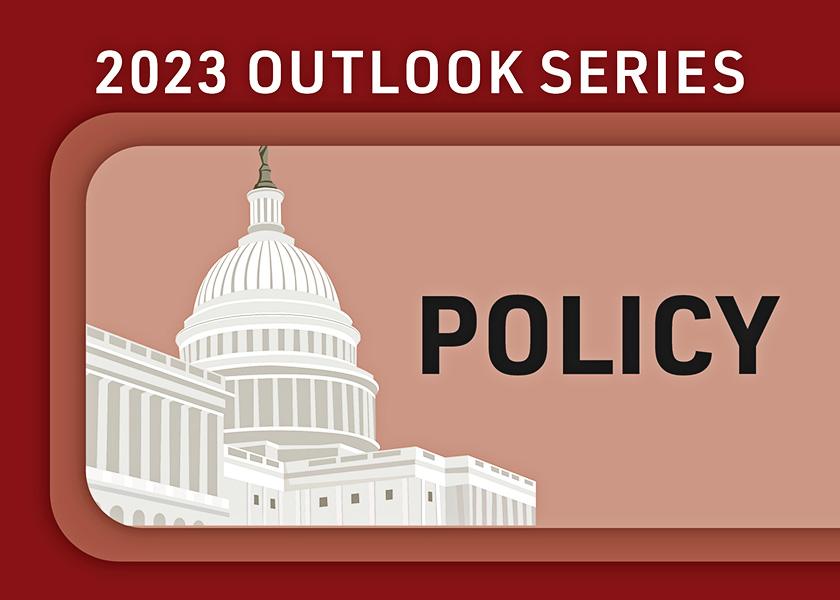4 Ag Policy Issues to Watch in 2023

Big moves in Washington in 2023 could impact your farm
When it comes to Washington D.C., the crystal ball is always cloudy. In separating the signals (a few) from the noise (a lot), Jim Wiesemeyer, Pro Farmer policy analyst, is keeping his eyes on some key topics in the year ahead.
1. NEW FARM BILL.
One is coming but it might not be in 2023, says Wiesemeyer (This will be the 11th farm bill he’s analyzed out of 19 total.). Analysts expect the Senate to finish a bill by the August recess, but they are not so sure about the House, which will be controlled by Republicans. But talks with incoming House Agriculture Committee Chairman G.T. Thomson, R-Pa., show his passion for getting a bill through. Early in 2023, Thompson will check in with his panel members on their thoughts for a new farm bill.
2. TRADE POLICY.
During President Joe Biden’s first two years in office, trade policy has not been a key focus, Wiesemeyer says. That could change with these issues:
- Mexico: The country’s president has delayed until 2025 his goal to ban imports of GMO corn, specifically food (white) corn. Of the around 18 million tons of U.S. corn Mexico imports, nearly 20% is white corn. Mexico is going to study the impacts of GMO corn for the next two years, ahead of their possible ban, but trade policy experts signal this issue will eventually be worked out. If not, it will be challenged via the U.S.-Mexico- Canada trade agreement.
- New trade agreements: The Biden administration has a different approach to trade policy, deemphasizing traditional trade agreements. But some of his congressional Democrats are sounding a lot like Republicans who favor traditional trade accords. Look for a push to get one with the United Kingdom, which would likely boost U.S. livestock feed exports as U.K. producers want competitively priced feed.
- China: U.S. ag clearly has a lot of eggs in China’s trade basket. Experts say we can and should expand markets elsewhere because within the next five years China will “deal” with Taiwan. If so, U.S.-China trade ties would again be contentious. Also, Brazil recently sold China corn, and that is expected to accelerate. That means a shift in corn trade around the world.
3. IMMIGRATION REFORM.
Leaders and centrists from both parties want to prove a split Congress does not mean total deadlock, Wiesemeyer says. One area is immigration reform. Republicans insist on border security measures first, then they will give somewhat on other immigration issues favored by Democrats. We will likely know within the first six months of 2023 if there is a chance of compromise.
4. CROP INSURANCE.
Talks with private crop insurance companies signal a new option could be coming: The IMP or individual Margin Protection. However, if it is approved, it would be a 2024 crop year product with a Sept. 30, 2023, sales closing.








